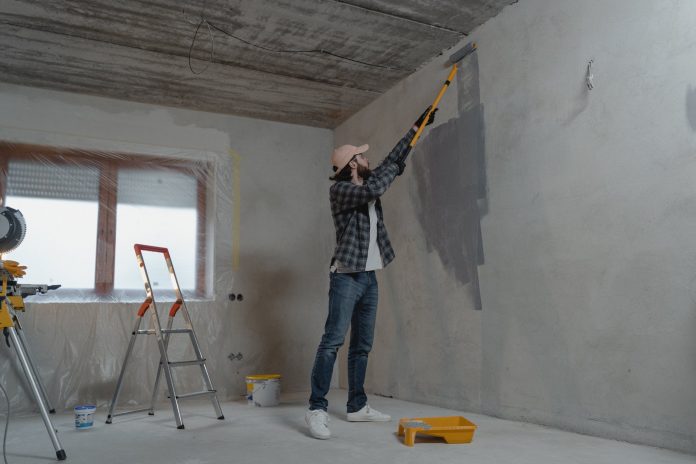
One of the biggest joys of being a new homeowner is picking out furniture and paint colors, but it’s also important to be concerned about the building’s upkeep. As you settle in, you may realize that there are a few issues the home inspector missed. A gap in the door or a crack in the wall may seem minor, but glossing them over may cause utility bills to climb or a bigger problem to arise.
You could hire a handyman, but the choice might tamper with your budget. There is a solution: DIY! Smart homeowners know just how valuable these skills truly are.
1. General Plumbing Knowledge
Plumbing is complex. Experts in the field put in a lot of time to achieve their certification and licensing, so having a basic understanding of how plumbing works can save you a lot of stress and money. Add to that the fact that a burst pipe or leaking faucet can be disastrous if left unattended, and you have a compelling reason to learn.
Knowing how to turn off your water at the main connection is a good start. From there, get to know the basic tools of the trade. Knowledge in PVC plumbing repair also helps.
2. How to Measure and Use a Saw
Knowing how to operate a saw properly and safely can be a huge advantage around the home, allowing you to make many repairs on your own. Fixing broken trim or rebuilding a subfloor can come in handy when there’s an issue.
Most minor home repairs can be completed with a band or circular saw. In addition to simple home repairs, if you’re a savvy amateur carpenter, you can build and repair steps and create outdoor projects to ramp up curb appeal.
3. Drywall Repair
It’s happened to most of us: a door slams against the wall, and suddenly there’s a hole or gouge. Ouch. It’s a major eyesore, but it’s also an easy fix.
All you need are a few tools and supplies:
- Taping or putty knife
- Utility knife
- Drywall tape
- Joint spackle or drywall mud
Grab some drywall and cut a piece to fit. From there, you can easily make minor and major repairs. So the next time an accident occurs, don’t sweat it. Just DIY!
4. Unclogging Drains
Having a clogged drain can be a real problem, especially when it backs up and doesn’t go back down quickly. Generally, it’s a simple fix that involves clearing hair or a blockage out of the drain tube area. But it can take a bit of practice and knowledge to assess just how to clear the clog safely.
First, get to know your tools. Being able to use a plumbing snake or device that can clear the pipe can prevent further damage from a major backup or flood. If you choose to use chemicals, be sure you understand when and where to use them, too.
5. Understanding Basic HVAC Components
If you have a central heating and cooling unit, getting to know it can give you the upper hand. An extinguished pilot light, for example, can be a real issue that forces you to place an after-hours emergency call with your local HVAC repairman. If you know how to relight it (safely), you’ll dodge those costs.
Troubleshooting your HVAC system to see if the blower comes on is also immensely helpful, as is knowing how to change out your own air filter regularly. Learning how to repair ductwork cracks can also help you trim back on repair costs each fall and spring.
What you should save for the pros is any fix that requires you to totally open your device and mess with internal parts/wiring. Doing so yourself might void your warranty.
Being able to troubleshoot and fix problems yourself is a tremendous advantage as a homeowner. It can help you save and maintain your home without expensive calls to the pros. Either way, getting the job done correctly is the goal. Don’t be afraid to tackle that project; you’ll be surprised at what you can accomplish!






